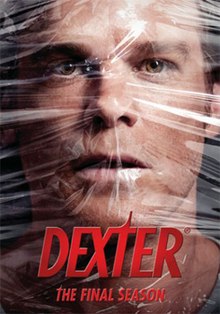The Volokh Conspiracy
Mostly law professors | Sometimes contrarian | Often libertarian | Always independent
Court Rejects "Scary Dexter" Lawsuit

In Njewadda v. Showtime Networks, Inc. (N.Y. trial ct. Jan. 29, 2019), plaintiff sued alleging that she stumbled and injured herself in Grand Central station because she saw a scary Dexter ad (apparently the one I reproduce above):
[S]he turned around and attempted to ascend the staircase to ascertain his whereabouts, when she saw and was confronted with, under the steps thereto, a semi sub-merged but dramatically oversized photograph, poster and or wraparound advertisement of the actor Michael C. Hall, who portrays himself as DEXTER, a Showtime series about a serial killer….
[T]he photograph, extending the full length of the steps from the top of the platform to the bottom, depicted a shocking, and menacing face of a Caucasian man (DEXTER) exhibiting an expression of fear or shock and was covered, draped or enwrapped in cellophane/plastic wrap ….
[T]he sight of [the] photograph startled, shocked and overwhelmed [p ]laintiff causing her to panic and become fearful, which fright, fear and anxiety caused her to panic and lose her balance on the steps resulting in her falling down the steps to the bottom thereof ….
Plaintiff essentially argued that the posting of such a supposedly distracting and frightening poster was negligent:
Plaintiff makes reference to the Dexter Advertisement as "a large, deliberately oversize wraparound and dramatically distorted poster of a man under the stairs visible only to pedestrians walking up the stairs'', "a dangerously distracting foreign object [in] the ocular field or flow of human traffic upon said precarious staircase", "a deliberate induction of a kinetic psychocognitive impulse generator of fear in the viewer", "an ocular trap" and "a malignant optical distraction buried in the stairs that functionally operated, in certain foreseeable circumstances, as an ocular shock trap or hazard to unwary pedestrians ….
No liability, says the court; I think its analysis isn't quite sound (which focuses on supposed lack of duty on the part of some defendants and lack of a "physical act" by others). But I agree that the court should have found that, as a matter of law, the defendants didn't act unreasonably.


Show Comments (17)